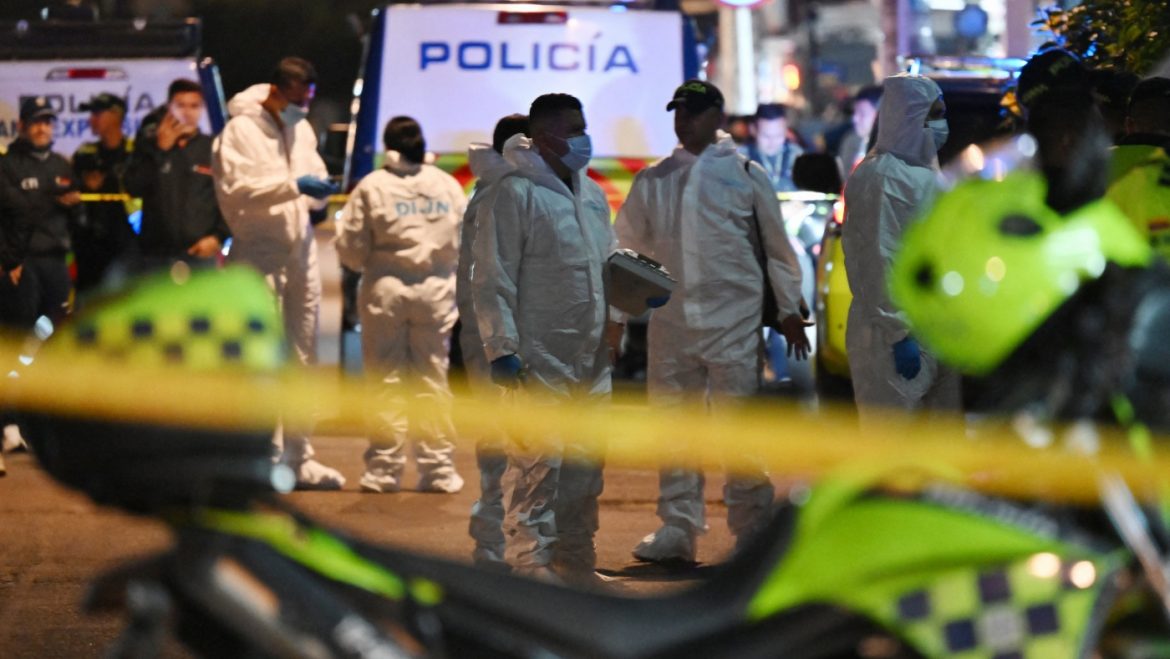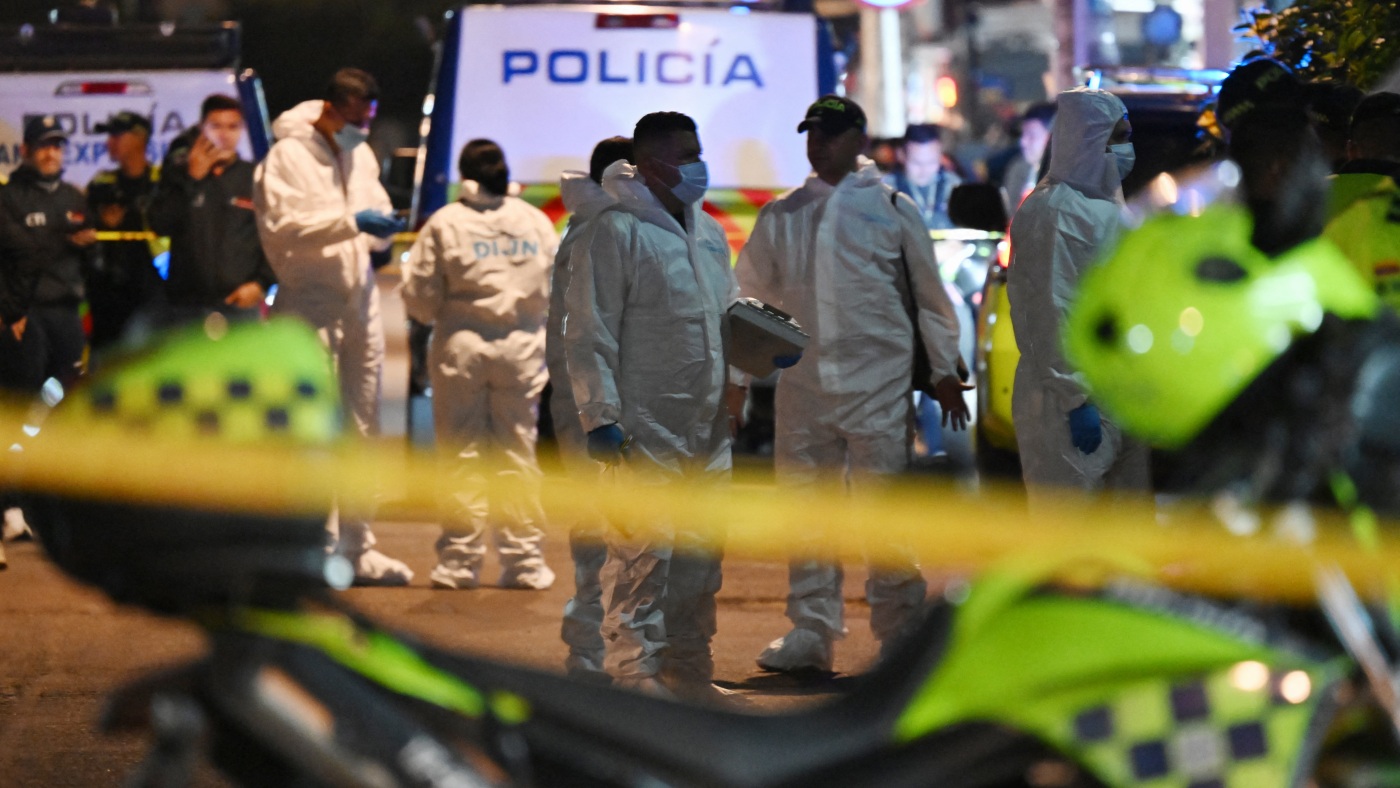The recent shooting of Colombian senator and presidential hopeful Miguel Uribe Turbay during a campaign event in Bogotá has sent shockwaves through the nation, stirring deep concerns about political violence and security amidst an already tense electoral environment. This report delves into the incident’s circumstances, the ramifications for Colombian politics, and the broader context of violence in the country’s political sphere.
The Incident: A Violent Assault on Democratic Process
On Saturday, June 7, 2025, Miguel Uribe Turbay, aged 39, was shot three times during a campaign rally in Bogotá’s Modelia neighborhood. Media reports confirm that two of the shots struck him in the head, while the third hit his back. Emergency medical response was swift, with an ambulance transferring him between hospitals amid fears for his life. Officials described his condition as critical, highlighting the severity of the wounds. Surgical interventions have been reportedly successful, yet Uribe remains in intensive care.
The attack occurred in broad daylight in the nation’s capital, underscoring the audacity of the assailants and the vulnerability of political figures amidst Colombia’s evolving security landscape. Authorities arrested a 15-year-old suspect in connection with the shooting, adding complexity to the investigation and questions regarding the shooter’s motives and potential affiliations.
Political and Social Reverberations
Miguel Uribe Turbay is a recognized figure within Colombia’s Democratic Centre, a right-leaning opposition party, positioning him as a significant contender for the forthcoming presidential election scheduled for 2026. This assassination attempt not only jeopardizes Uribe’s political career and personal safety but also shakes public confidence in the democratic process and the safety of political candidates across the spectrum.
Colombia has a fraught history of violence against politicians, from the assassinations of presidential candidates in the late 20th century to widespread paramilitary and guerrilla conflicts that have periodically engulfed the country. The boldness of this attack reflects ongoing challenges in securing the political arena, despite decades of national efforts aimed at peacebuilding and conflict resolution.
Supporters of Uribe gathered outside hospitals to hold vigils, reflecting public grief and solidarity. Political leaders, including Colombia’s defense minister Pedro Sánchez, swiftly responded by offering rewards for information leading to those responsible, signaling a robust governmental stance against political violence but also acknowledging the unresolved threat it poses.
Security Concerns and the Broader Electoral Context
The shooting occurs amid reported backsliding in Colombia’s security situation. Despite government initiatives and peace accords aimed at pacifying armed groups and reducing violence, incidents such as this highlight persistent vulnerabilities. Political rallies, traditionally open forums for citizen engagement and campaigning, have become sites fraught with risk.
This case raises urgent questions about candidate protection protocols, intelligence capabilities, and law enforcement responses in high-risk public events. The fact that the suspected assailant is a minor introduces additional complexity regarding the roots of political violence, potentially implicating issues such as youth recruitment by armed groups or socio-economic disenfranchisement.
Furthermore, Colombia’s electoral cycle is now shadowed by this violent episode, potentially impacting voter sentiment and campaign strategies. The chilling effect of such attacks might suppress political participation or foster heightened tensions between competing political factions, undermining prospects for peaceful democratic transitions.
Implications for Colombia’s Democratic Future
The attempt on Miguel Uribe Turbay’s life is emblematic of the broader struggle Colombia faces in balancing democratic aspirations with deep-seated security challenges. Political violence, if left unmitigated, threatens the very fabric of representative governance and public trust in institutions.
This incident serves as a stark reminder that protecting political candidates is not merely a security issue but a democratic imperative. It calls for renewed focus on integrated approaches involving intelligence sharing, community engagement, mental health and social programs, and judicial rigor to dismantle networks that propagate violence.
The resilience of Colombia’s democratic structures will be tested as the nation navigates the aftermath of this attack. Strengthening safeguards around electoral processes and fostering an environment where political competition can occur free of fear will be essential in restoring public faith and ensuring that the sacrifices of those like Uribe do not undermine the country’s push toward peace and stability.
—
Conclusion: A Nation at a Crossroads
The shooting of Miguel Uribe Turbay reverberates far beyond one candidate’s critical condition; it signals a pivotal moment for Colombia’s democracy. The attack exposes vulnerabilities and the persistent specter of political violence that threatens to derail democratic progress. Colombia stands at a crossroads, confronting the urgent need to fortify democratic institutions and safeguard political discourse from violence. The nation’s response in the coming days and months will be critical in shaping its trajectory toward a more secure and inclusive political future.


